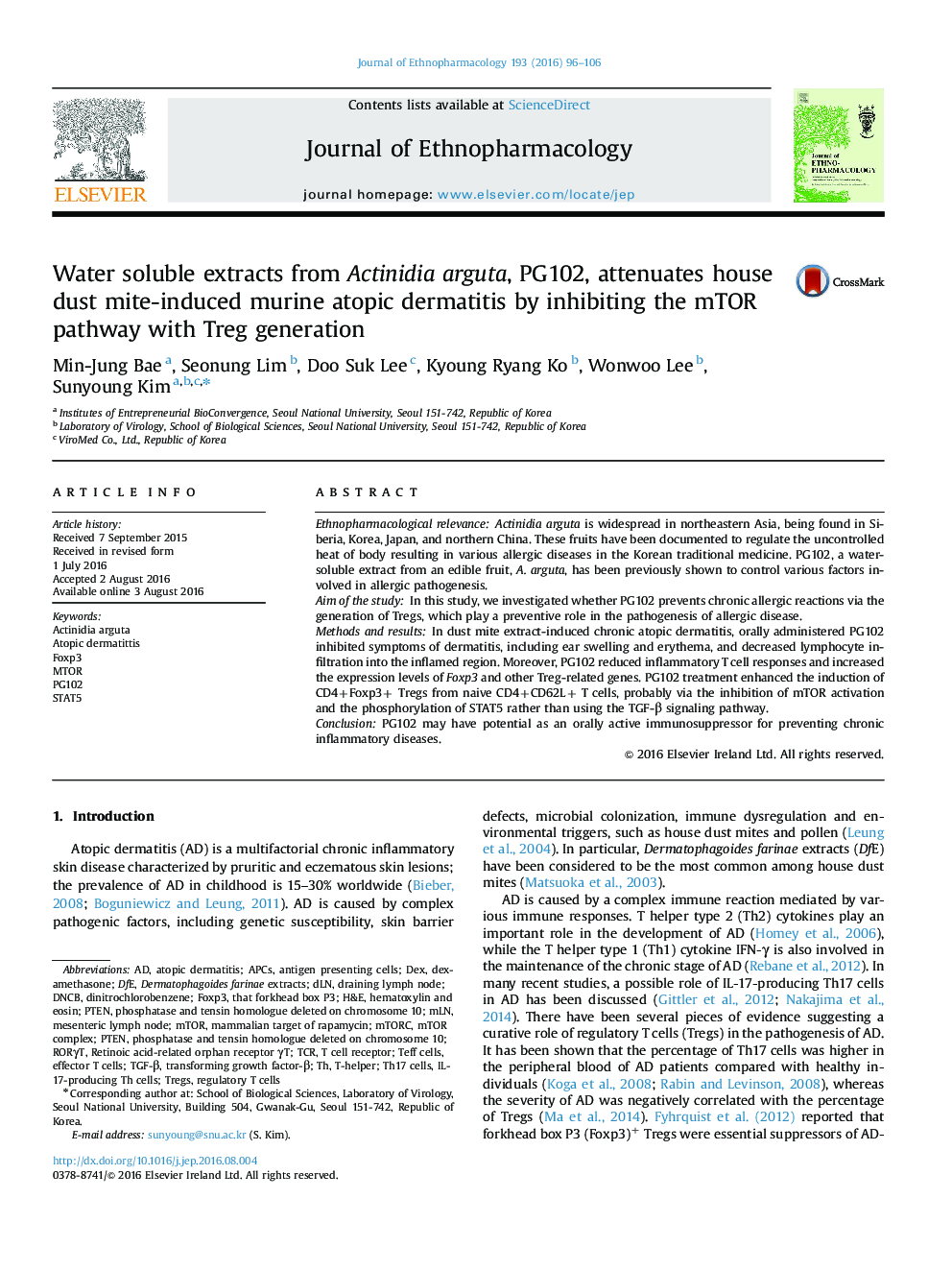| Article ID | Journal | Published Year | Pages | File Type |
|---|---|---|---|---|
| 2544616 | Journal of Ethnopharmacology | 2016 | 11 Pages |
Ethnopharmacological relevanceActinidia arguta is widespread in northeastern Asia, being found in Siberia, Korea, Japan, and northern China. These fruits have been documented to regulate the uncontrolled heat of body resulting in various allergic diseases in the Korean traditional medicine. PG102, a water-soluble extract from an edible fruit, A. arguta, has been previously shown to control various factors involved in allergic pathogenesis.Aim of the studyIn this study, we investigated whether PG102 prevents chronic allergic reactions via the generation of Tregs, which play a preventive role in the pathogenesis of allergic disease.Methods and resultsIn dust mite extract-induced chronic atopic dermatitis, orally administered PG102 inhibited symptoms of dermatitis, including ear swelling and erythema, and decreased lymphocyte infiltration into the inflamed region. Moreover, PG102 reduced inflammatory T cell responses and increased the expression levels of Foxp3 and other Treg-related genes. PG102 treatment enhanced the induction of CD4+Foxp3+ Tregs from naive CD4+CD62L+ T cells, probably via the inhibition of mTOR activation and the phosphorylation of STAT5 rather than using the TGF-β signaling pathway.ConclusionPG102 may have potential as an orally active immunosuppressor for preventing chronic inflammatory diseases.
Graphical abstractFigure optionsDownload full-size imageDownload high-quality image (204 K)Download as PowerPoint slide
